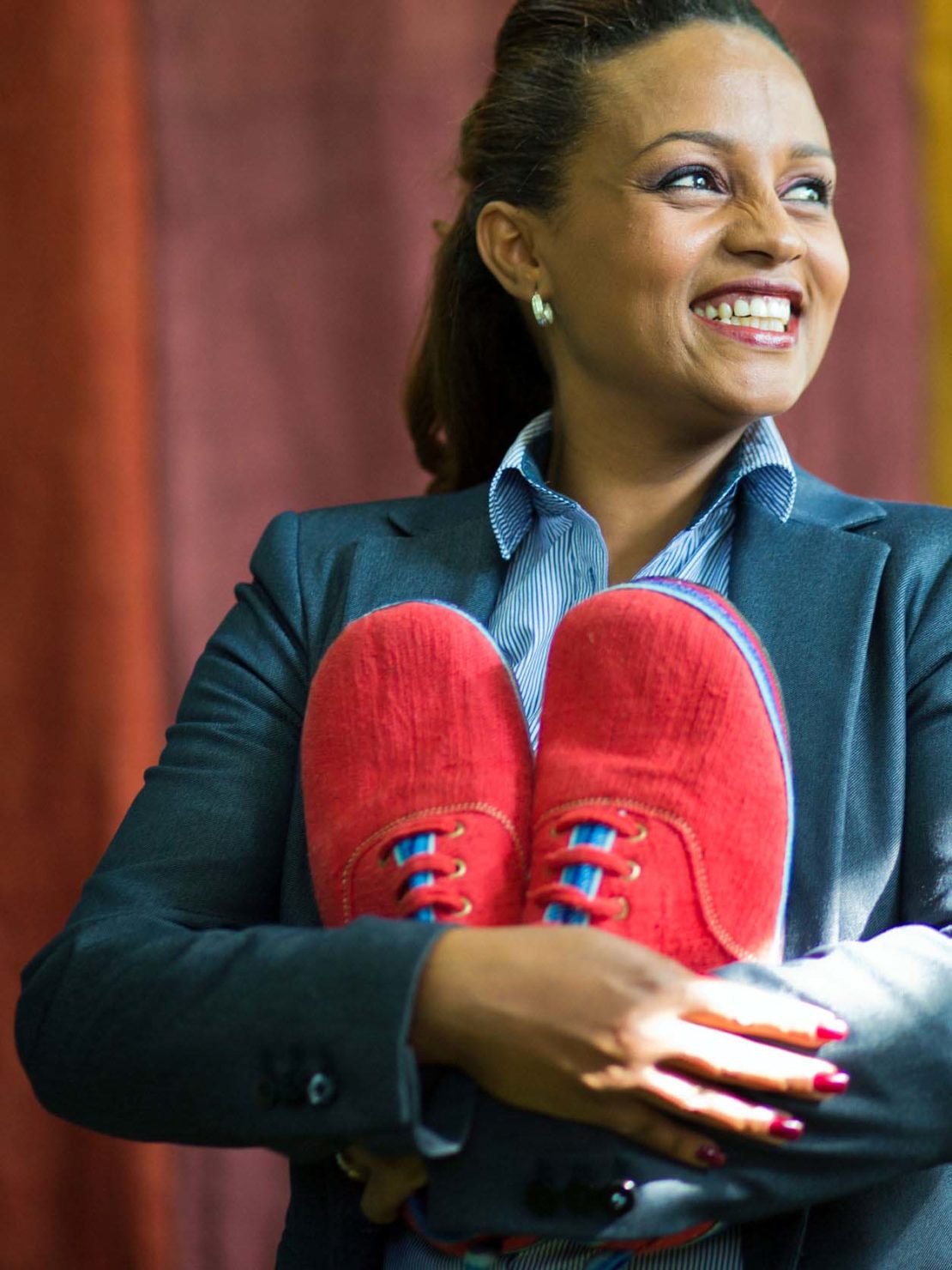
"We're not green because some bloke in marketing told us it was a good idea"
As a girl growing up in Addis Ababa, Bethlehem Tilahun Alemu saw people all around her wearing makeshift sandals improvised from old lorry and car tyres. Later, when she left college, she decided she would sell these handcrafted, recycled tyre shoes to the rest of the world. A decade on, she expects to turn over $6m in online sales this year; has opened 11 shoe stores in the Far East and Europe; and has plans for 50 more in the next three years.
The tyre-soled shoe developed as a result of scarcity. Waste was simply too valuable not to reuse. “When you have limited resources, everything is valued,” Tilahun Alemu says. “Everything has a purpose, even if not the purpose originally intended; and if not, one can always be found for it.” The selate tyre-soled shoe was originally popularised by freedom fighters resisting Italian colonisation in the 30s and 40s and subsequently spread throughout Ethiopia: extremely basic, cobbled together, ubiquitous.
Tilahun Alemu, a mother of three, is a small woman with a soft voice that belies her verve and drive. Born in 1980, she grew up in Zenabwork, one of the most impoverished areas of Addis Ababa, where her father was an electrician and her mother cooked and raised the children. Education was seen as the route to success and Bethlehem went to local primary and high schools and then to Unity University in Addis Ababa to study accountancy. In her student years and immediately after, she worked in leather and clothing companies learning marketing, sales, design and production.
Increasingly, she became frustrated by the disjunction between profitable companies in the formal economy and the unrewarded skills in her own community. She had grown up watching members of her family spin cotton with an inzert (a centuries-old wooden spindle); she had spun rolls of fetel (soft cotton), with her mother and watched weavers making netalla and gabbis (shawls and blankets), on traditional wooden looms. “I saw what talented people in the community could do but, owing to extreme poverty, stigma and marginalisation, many of them couldn’t get simple jobs. These were people I had grown up with, my neighbours and family.”
Her decision to bridge the gap between these artisans and global commerce has led to a highly successful business. It is not uncommon to have difficulty getting hard data on African companies and so it is here: Tilahun Alemu tends to talk about projected rather than actual turnover. Other members of her family are involved in the business, not least her husband, but they remain shadowy figures. For anyone interested in how the company is organised, the relentless public focus on her can be quite frustrating. “My family have all been involved,” is all she will say. “My husband is my sounding board who constantly challenges me to go higher.”
Clearly, she is turning over several million dollars’ worth of business which, in manufacturing and retail, cannot be done single-handedly. As the public face of the brand, she still answers customer inquiries herself with her usual panache, but she manages to guard her privacy quite carefully. It has to be said that the approach is working: last year CNN placed her fourth on their list of 12 women entrepreneurs who have changed the way the world does business, along with Coco Chanel, Giuliana Benetton, Anita Roddick and Sara Blakely, creator of Spanx. The PR operation isn’t, I think, misleading but it is so slick that it can feel a bit controlling.
Bethlehem Tilahun Alemu began with five artisans in a shed on land belonging to her grandmother who, years before, had been one of the first inhabitants of Zenabwork, a migrant from Gojjam in search of a better life. “By the time I was growing up,” Bethlehem says drily, “it was clear a better life was non-existent for this community.”
Her brand is called soleRebels, a nod both to the freedom fighters and to the rebelliousness of the project. “I grew up hearing about poverty alleviation but even as a girl I had a strong feeling that the people doing the talking were not connected to the communities where they were trying to ‘alleviate poverty’. They were invariably prosperous themselves, so why set the bar so low for others? I became convinced that prosperity creation is the sole route to the elimination of poverty – and for that, you have to create something world class.” (Interbrand estimates that the top 100 global brands are worth almost $1 trillion, equal to the combined GDP of the world’s poorest 63 countries.)
While soleRebels shoes are marketed for their style and comfort, the fact that they reuse old tyres is an important part of their backstory. Tyres take up a lot of space in landfill, more than half of which is void. They can trap methane gases, creating a bubbling effect that can damage the liners designed to stop pollution of the surface and groundwater. They are flammable. When stockpiled, they are a breeding-ground for vermin and mosquitoes. And it’s estimated that, worldwide, 259m of them are discarded every year.
“We’re not green because some bloke in marketing told us it was a good idea,” Tilahun Alemu says, “but because this is how we make shoes in Ethiopia.” All the same, the eco-sensibility adds a powerful emotional punch to soleRebels’ marketing. The company also sources cotton from small-scale, local organic growers. (Cotton is not, on the whole, a particularly eco-friendly material. The American Organic Trade Association estimates that one T-shirt typically contains approximately one third of a pound of pesticides and fertilisers, which permeate the soil, run into the water and pollute ecosystems with toxins.) “Owing to the privations here,” Tilahun Alemu says, “most small-scale cotton farmers never used anything more complex than animal dung as fertiliser, meaning that Ethiopia is one of the last places in which authentically organic cotton is grown. The support we give these farmers allows them to continue to grow in the traditional manner.”
The shoes also use Abyssinian hemp (hemp is the world’s most ubiquitous natural fibre and nowadays can be spun into soft, high-quality fabric); and the koba plant, cultivated in Ethiopia for more than 10,000 years, which Tilahun Alemu has adopted as her logo. Every part of the koba plant has a use: the roots can be eaten, it regenerates itself after harvesting and requires little water and no chemical input to grow. “Cool, effective and resource-friendly,” she says, “just like us.”
Tilahun Alemu’s achievement could only have been possible in the 21st century. Right from the start, she was able to market shoes from a shed in Addis Ababa to consumers all over the world thanks to the internet – initially, via commerce platforms like Amazon: later, on her own website. The notion that a low-value, rough-and-ready product can be translated into a stylish and covetable object is also a product of globalisation. Tilahun Alemu has created a fusion fashion which, like fusion food, aims to combine good things – great design and environmentally-friendly authenticity – to bridge cultures.
She compares soleRebels, with no shortage of ambition or optimism, to hip-hop; her shoes, she likes to think, are a culturally specific, initially geographically limited phenomenon with the potential to be embraced all over the world. “While having an Ethiopia ‘splash’ to them, they are universal.” She claims – and it is hard to find any evidence to contradict this – that there is widespread support in Ethiopia for her project of taking something local and turning it into a globally covetable item. The soleRebels store in Addis Ababa is the top-selling shoe retailer in Ethiopia and when I ask if anyone minds her appropriation of the selate shoe to make a personal fortune she is scathing: “It would be very hard to ‘appropriate’ something from one’s own culture. In fact people in Ethiopia are incredibly proud that we have been able to take something extremely basic and make it a global hit.”
Tilahun Alemu’s astute grasp of what will appeal to consumers beyond Africa often leads people to assume that she must have lived abroad, which she finds irritating. “This is a small but critical point,” she says, “I have never lived anywhere but here. There is a distorted but powerful conventional wisdom, here and across Africa, that says if you want to succeed, you have to get out and go, especially west. I wanted to show that it is possible to be a local person in Ethiopia and Africa and still be globally successful.
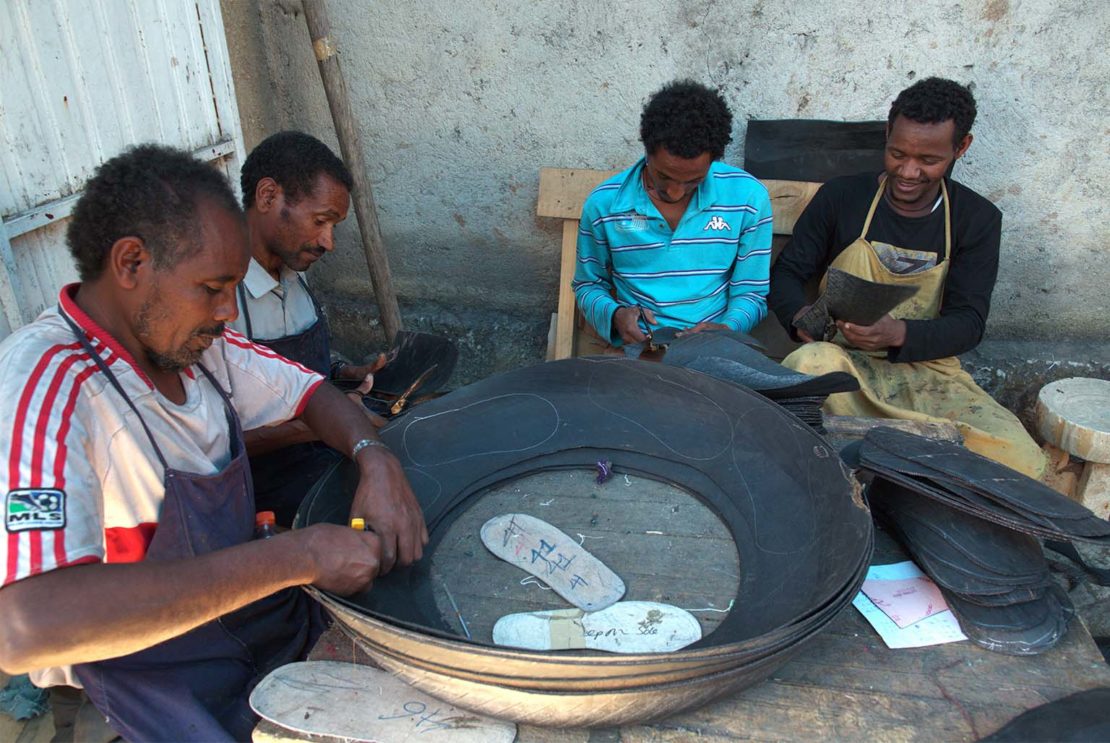
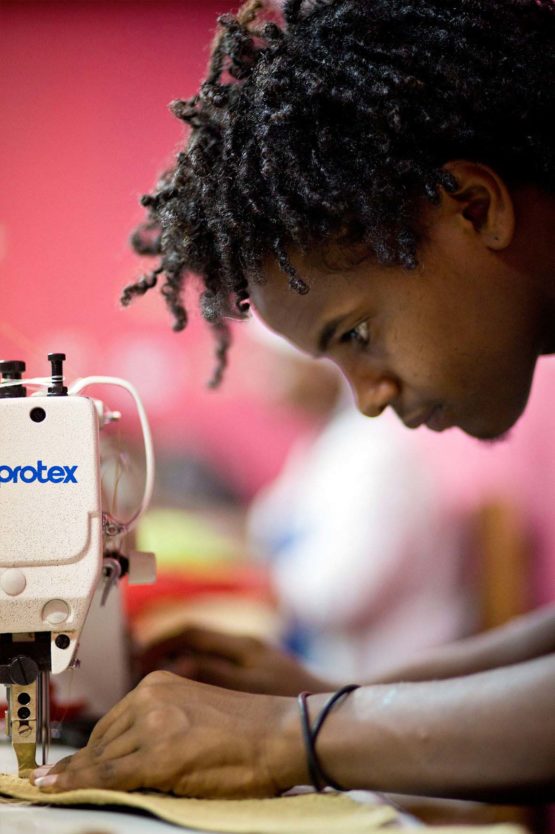
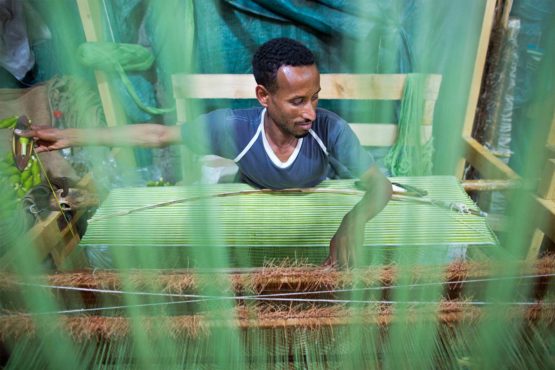
The factory
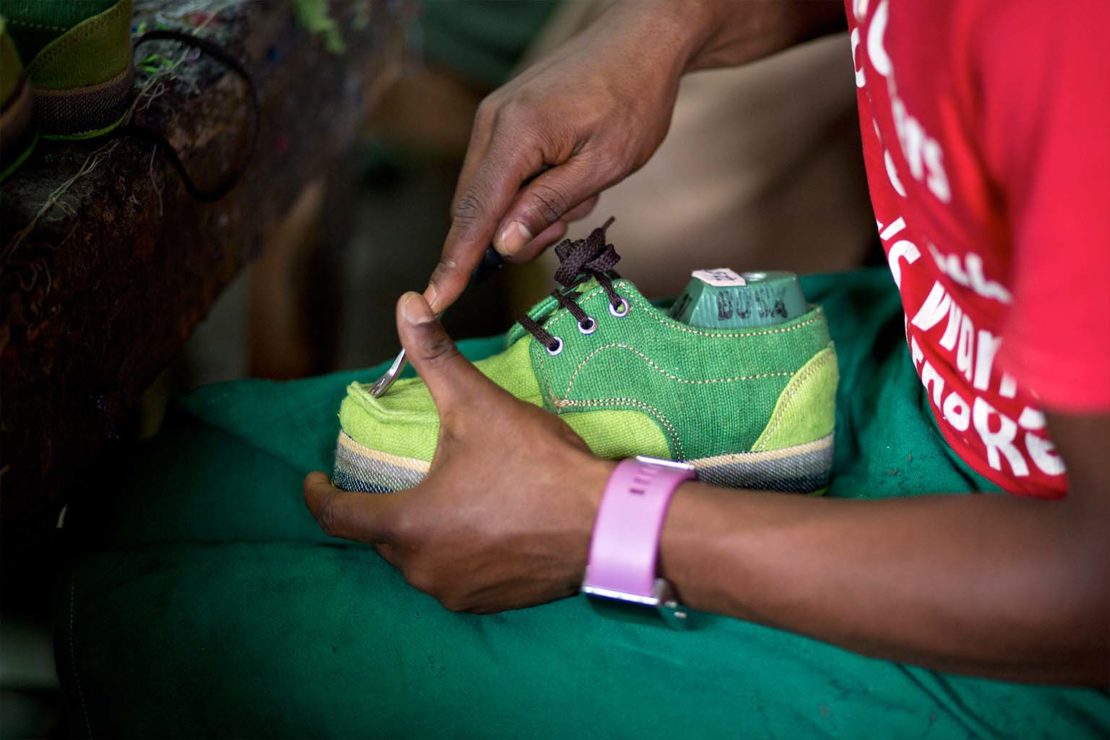
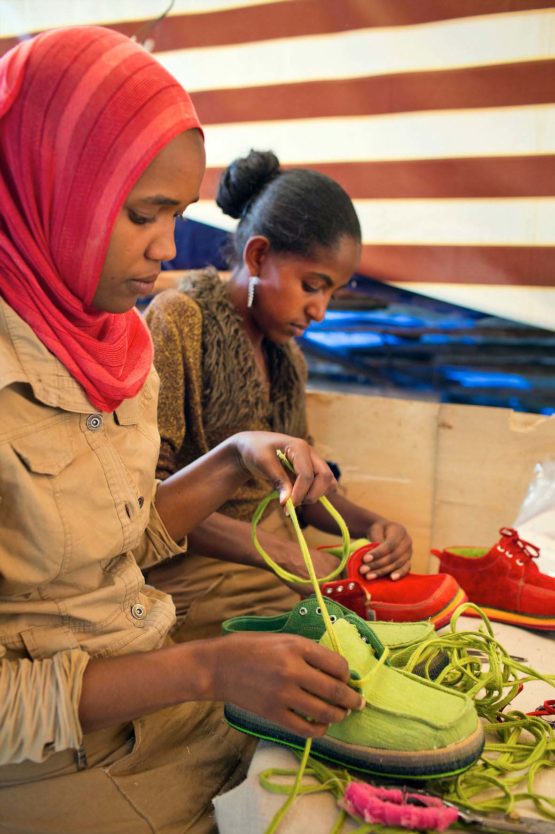
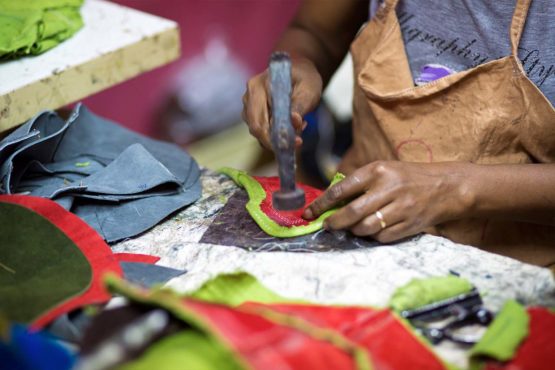
The workers
The idea that waste can and should be reused is a powerfully appealing one, even for customers who aren’t environmental true believers. The notion that it is important to remake things – that in fact, there is really no alternative to reusing what we already have – resonates back through human history to the Greek philosopher Parmenides, whose theory ‘nothing comes from nothing’ influenced Plato and, it is probably fair to say, the whole of western philosophy. Parmenides’ dictum inspired the belief that we should make use of and reuse what we have, because it is all there is. Novelty is a chimera – or at least, only a repositioning of what we already know; and in an age of overconsumption, when there is a widespread sense that our appetite for more and more stuff is killing us, this is an idea that has power.
To innovate, in Latin, implies not to start afresh, but to renew or reform. Even without Parmenides (or Ecclesiastes’ ‘there is nothing new under the sun,’) the idea of circularity, of making new things on the basis of the old, must have been powerfully suggestive to human beings through the ages. The rhythms of the earth and the solar system offer a paradigm of circularity that must always have seemed intuitive, commonsensical. The related belief that everything that exists has the potential to be renewed also found expression in Christian ideas of rebirth and resurrection. And one of the most dominant ideas of our own time also depends on the notion that creation and novelty come from reuse. Evolution explains the world to us as a system that builds on what has gone before, with astonishingly inventive results.
Industrial processes often flout this foundational idea. We call ourselves consumers, yet we don’t consume. Many of the products we use spend most of their existence decaying a dump somewhere. Our industrial processes are usually linear; in other words, we take resources, make things from them, and produce waste. This is not how things happen in nature, where processes are cyclical and there is no such thing as waste because every byproduct of one system is a nutrient for another.
In his bestselling and influential book, The Ecology of Commerce, Paul Hawken identifies a widespread sense that, in the last two centuries, we have ‘expropriated resources to fuel a transient period of materialistic freedom and we must now restore those resources and accept the limits and discipline inherent in that relationship’. When nature is under threat from our linear systems, it is not surprising that there are calls for business to model itself more closely on the rhythms of nature and aim to produce only products, byproducts and services that are nutrients for the next phase. These might be biodegradable, like food waste or compostable clothing; or they might be what Michael Braungart and William McDonough identify in their book, Cradle to Cradle, as ‘technical nutrients’, materials that can circulate back into the creation or use of other products: tyres that become the soles of shoes, for example.
SoleRebels is not, of course, part of a circular economy. Consumers still have to dispose of their shoes. But the advantage for Tilahun Alemu of having begun her business in the 21st century, in a place that has had little heavy industry, is that she has been able to use local resources, bringing to manufacture an ecological sensibility (which is both traditional and contemporary) that wealth is illusory if it involves despoliation. Her company offers consumers the promise of buying into a product that is doing some good, that is at once new and restorative.
This idea that money can be made out of creating a restorative economy rather than a destructive one is increasingly animating businesses all over the world. In Kenya, Lorna Rutto has founded a company to collect the plastic rubbish that continues, despite a government ban on the use of plastic bags in 2007, to litter the landscape and clog cities. Rutto is around the same age as Tilahun Alemu and was born and grew up in the Kaptembwa Slums, an area scarred by waste and blocked sewers. After graduating in commerce and accountancy and working in a bank, she founded EcoPost in 2009, to turn plastic waste into fence posts. Kenya has less than 2 per cent of forest cover but there is high demand for fencing. Rutto’s posts don’t require binding agents or complex processes to manufacture and the Canadian Forestry Association calculates that they have saved an estimated 250 acres of forest. To date, EcoPost has rescued a million kilograms of plastic waste and estimates that, since plastic recycling saves 2.5kg of carbon dioxide emissions for every kilo of plastic, it has also prevented 2,500,000kg of CO2 emissions.
In the UK, Kresse Wesling uses old fire hoses to make luxury belts, bags and accessories. “When you polish old hose and see the lustrous red rubber it becomes this fantastic material,” she says. “Waste is a mixture of inherently valuable components. It’s a shame to shove it in the earth. Sustainable luxury is a real possibility now: people aren’t just buying green because it’s green anymore; they want design and craftsmanship too.” In Bolivia, Gabriela Flores, founder of Kirah Design, makes high-end interior accessories – bowls, vases, jars – from recycled glass, wood and textiles. Like Tilahun Alemu, she employs talented artisans at the bottom of the pyramid. “It’s not about commercialising artisans’ products: we make new items with them from scratch, with creative designs that appeal to our culture and our clients. We don’t sell poverty, we sell a skilfully designed, high-quality product at a competitive price. And a great story behind it.”
More than 200,000 items on the craft sales platform Etsy are tagged upcycle or upcycled. The term is thought to have been first used by Reiner Pilz of Pilz GmbH, an engineering company, in 1994. “Recycling,” he said: “I call it downcycling. They smash bricks, they smash everything. What we need is upcycling – where old products are given more value, not less.” The last few years have seen a growth of platforms such as Hipcycle or Upcyclist, designed to sell or showcase reused products. Upcyclist’s featured products all have a strong design aesthetic; its home page explains its mission as reporting “on beautiful and innovative reuse of unwanted, unloved materials and objects from around the globe. We like restoring, recycling, reclaiming, reviving, remaking, repurposing, reusing, reloving… ”. From a slightly different perspective, AfriGadget is a website aimed at showcasing African ingenuity, promoting the notion that the hacker approach developed through years of privation can, when given access to materials and technology, produce really ingenious solutions, like door hinges made from old tyre-soled shoes.
Efforts to promote recycling (even when designed by knowledgable people) still overwhelmingly focus on persuading consumers to do more of it. There is a distinct lack of discussion of what happens to products once they’re in the bag or the right coloured bin. While recycling is mostly better than not recycling, it is very far from being an unalloyed good. The recycling of electronic waste, an estimated 50m tonnes of which is produced each year worldwide, is beset by problems. Extracting the raw materials from computers is not only energy-intensive but also hazardous, and for that reason often exported from the developed world. In Guiyu, in China, 150,000 people are employed disassembling old computers to recapture whatever metals can be reused or sold: snipping cables, prying chips from circuit boards, stripping wire to reclaim copper. A study by Shantou University Medical College has found high levels of lead in the blood of children whose parents recycle circuit boards, while Greenpeace has found toxic heavy metals in Guiyu’s groundwater and soil.
For as long as recycling remains the responsibility of consumers and downstream industries, manufacturers arguably have a free pass to include whatever toxic and difficult-to-dispose-of components in their products they fancy. Unfortunately, upcycling doesn’t really solve the problem of toxic dumping in the developing world any more than downcycling does. At the moment it is hard to find an upcycled product that isn’t artisan or artistic – Tilahun Alemu’s shoes would be at the technologically high end – and that seems likely to remain the case until the manufacturers of complex products take responsibility for what happens to their components once they become obsolete.
One company shows the way to how things might be different: in 1994, Ray Anderson, the late founder of Interface Inc., the world’s largest designer and maker of modular carpet tiles, read The Ecology of Commerce and determined to put its principles into practice with the aim of eliminating any negative impact on the environment by 2020. The company has deployed principles of biomimicry – copying nature’s reuse of waste – leading to strategies ranging from powering factories with renewable energy, to designing carpet tiles that follow methods of adhesion in nature (so avoiding the need for glue), to manufacturing carpets from thread made from old fishing nets.
Carpet tiles are notably less complex than computers but the ingenuity of production processes at Interface suggests that there is considerable potential for designing other products with an eye to the principles of biomimicry. That would, however, require manufacturers to take a much greater interest in what happens during the afterlife of their products rather than assuming that consumers and a not always-regulated recycling industry will take care of things.
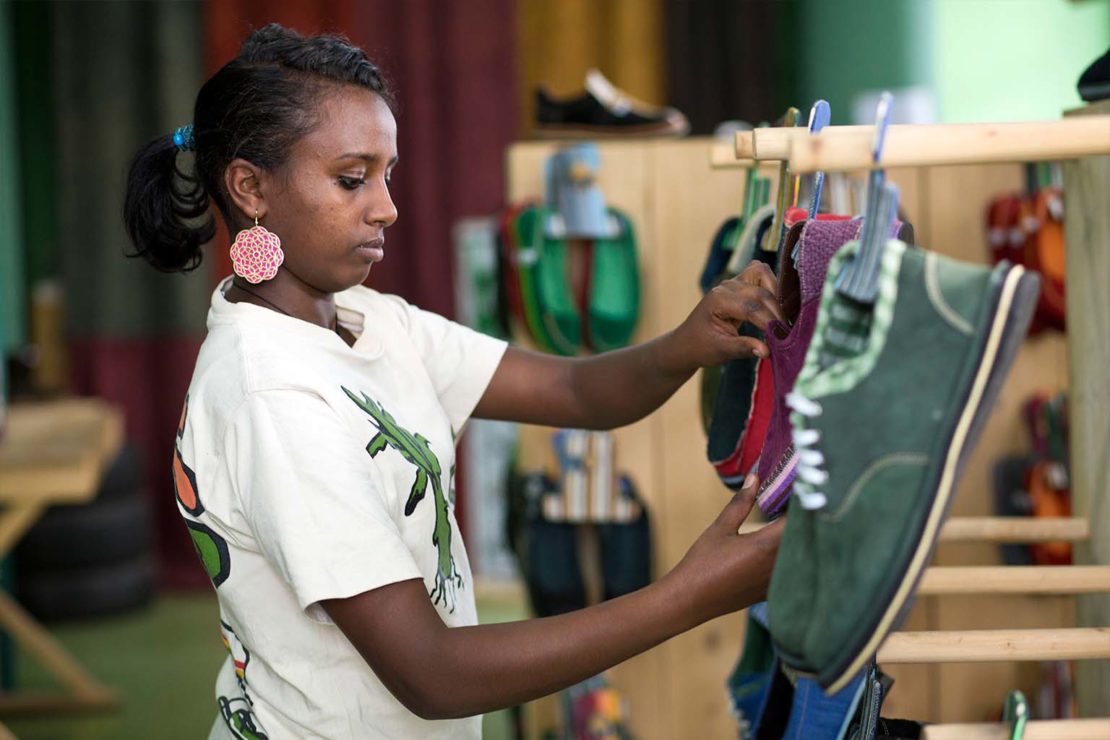
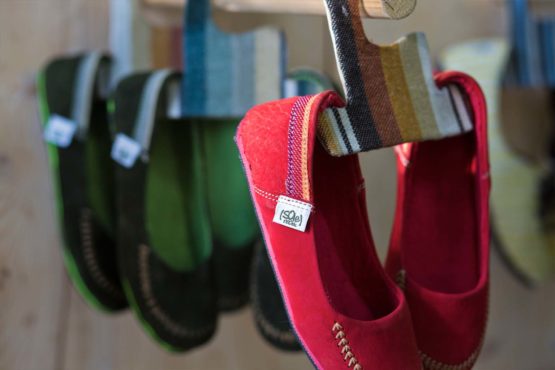
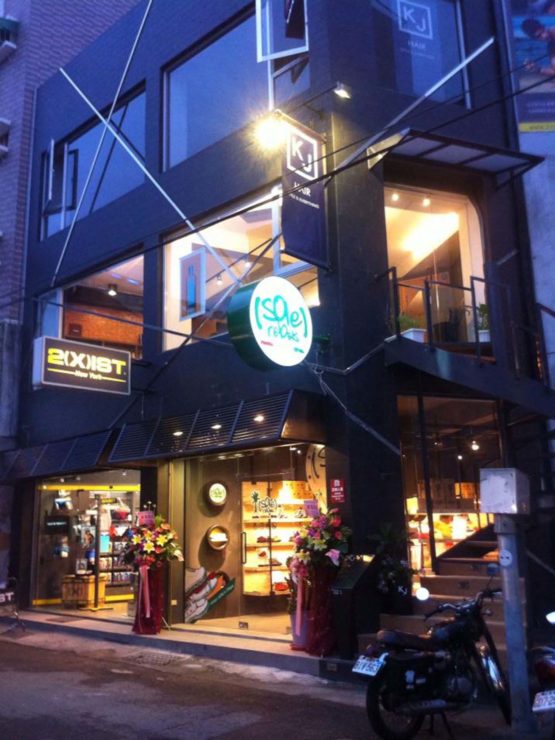
The shops
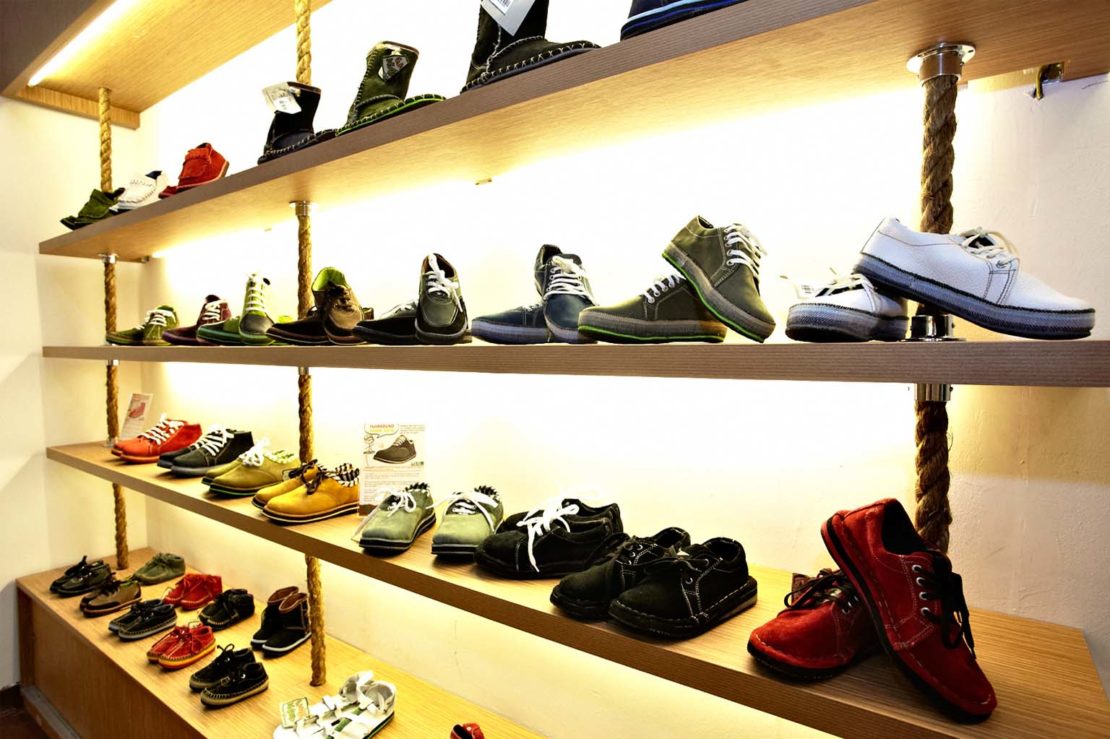
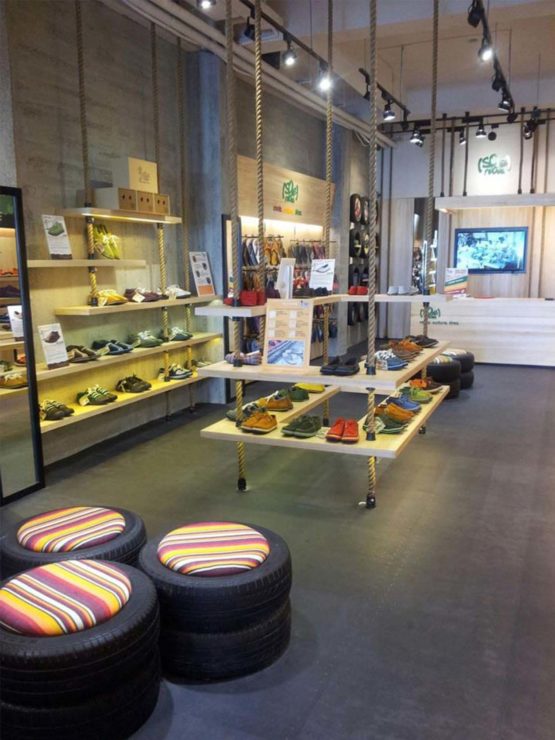
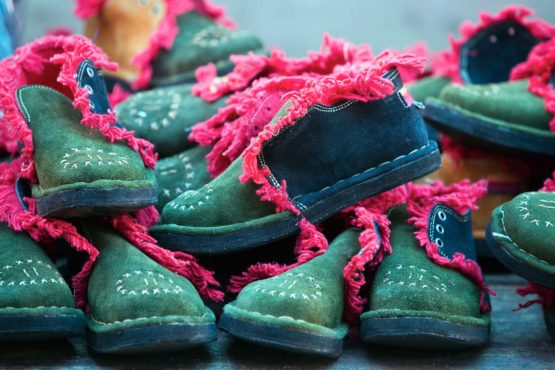
The shoes
In nature, every organism has a role, so a truly restorative economy would include the proper treatment of people. A billion people in the world who want jobs don’t have them; we are, as Paul Hawken notes in The Ecology of Commerce, the only species on the planet without full employment. There is sometimes an assumption in developed economies that to move to become more sustainable would be economically hazardous. For Bethlehem Tilahun Alemu, providing employment for the Zenabwork community was always inextricably linked to preserving a way of life in rhythm with the environment.
“The communal elements of the culture persist in Ethiopia and inform us deeply in terms of how we operate, respecting the land’s resources and people,” she says. soleRebels pays workers four times the legal minimum wage. There is no quota or piecework system. In a country with one of the lowest doctor-patient ratios in the world, doctors come to the company’s site and soleRebels provides health cover for employees and their families. Staff live in walking distance of the site, but the company provides transport for disabled workers. There is a fund to pay for the education of artisans’ children. All this has led to soleRebels becoming the first and only shoe company certified by the World Free Trade Organisation (WFTO).
Setting up a global business was always a political project for Tilahun Alemu, a riposte to the assumptions about Ethiopia that have dominated in the west for so long, what she calls “a singular and debased image of us. I can tell you point blank it hasn’t been Ethiopians at the forefront of creating the narrative about Ethiopia. She insists: “Africans must dominate the space that tells and sells Africa. We must tell our own stories, market our own ideas, companies, cultures and products. soleRebels represents the beginning of a historic shift to control our destiny b y exporting high-value branded finished goods instead of low-value commodity exports.”
Since 2011, Tilahun Alemu’s business has been opening retail stores and working with licensees, “but I am proud to say that soleRebels is 100 per cent family-owned. We have never taken any external investment to fund our growth.” This is clearly making her a rich woman but she claims it has widespread support. “soleRebels represents a new wave of businesses that truly and lastingly transform communities and nations. Entrepreneurial startups have the power to change a country’s trajectory.”
If, as the ancient philosophers suggested, nothing comes from nothing, innovation is by definition something that becomes new by being moved to a place unfamiliar with it. Waste, like everything else, is not actually wasted but contains the potential beginning of something else. Old tyres that would otherwise have been burnt, stockpiled, or gone into landfill can produce something revolutionary – both in the modern sense of something shockingly novel, and the older one, of a turn around an axis: part of a circular, restorative economic system.
At a moment when technology offers an opportunity even for startups in poor districts of developing countries to reach a global market, Bethlehem Tilahun Alemu – like an organism responding ingeniously to a new environment – has created something radical in an unexpected place. Combining tradition with modernity, by staying close to the earth but finding a global market, by harnessing ecological and market principles, she is creating a business that not only cheaply reuses waste but also projects a powerful, positive new story about Africa. “For us here at soleRebels,” Tilahun Alemu says, “creating footwear is also a means of creating hope.”